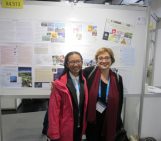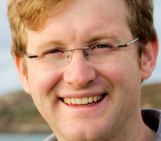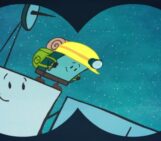Welcome to GeoEd, the new column on GeoLog dedicated to education in the geosciences! This is a series of posts written by the EGU Educational Fellow, Jane Robb that will cover the new and ongoing education initiatives across the EGU, as well as individual posts under the broad global pedagogical theme of education for sustainable development. GeoEd posts are aimed at formal and informal educators in the geosciences, primarily those teaching ages 11-18 but hopefully the content will be interesting for all educators, science communicators and scientists interested in public engagement. Jane’s posts can be used as thoughtful pieces for developing your own understanding of a topic or as teaching ideas as she incorporates questions, promts and links to useful external resources and some may be an adaptation of a complete lesson plan.
To start this series of educational posts, I will explore education for sustainable development through the lens of someone in the future – a sort of thought experiment if you will. I came across this approach on UNESCO’s teacher education programme: Teaching and Learning for a Sustainable Future.
Let’s start off with how much you know about climate change, not the only topic important in sustainable development, but one that stands out given the recent release of the first staggered part of the 5th IPCC Assessment (which I wrote about here). To start with, take this quiz developed by Know Climate Change – I’m expecting near full marks for most readers!

Climate Change: the words on everyone’s lips. (Credit: Jorge Mataix-Solera)
Now, with the current global anthropogenically induced crisis firmly in our minds, lets take a critical look at ourselves, our communities, society and governments and answer the question: how do you think people in the future (lets say 200-300 years) will feel about the way we are responding to and managing climate change now?

Anthropogenic forcing has caused unprecedented changes in the Earth’s climate. (Credit: Dimitri Defrance)
My response was: disappointed. On a lighter note, I also used the key word: conflicted. There are many people, communities and even key decision makers (and of course scientists) who care about the Earth’s future and those people are making important changes to their lives and the lives of others which are resulting in progress. However, is this progress enough and and how effective is it on a global scale?
UNESCO produced an adapted ‘letter from the future’, based on Allen Tough’s ‘What future generations might say to us’. I would be interested to know whether those reading the letter believe this message is accurate, based on our own best judgements.
The letter mentions that we are at a pivotal moment in humanity’s development and that each of us have the power to influence the course of humanity’s story. How accurate do readers think these statements are? In comparison to other times in recorded human history, are we at the most important point? This could be a good place to begin discussing other key subjects in the context of science, society and culture that may have influenced our lives now.
Do we also believe that every individual has the power to influence the course of humanity through their daily lives: what is the state of power distribution in society? How do governments work? How are policies developed and changed? We know that individuals can make small changes to their lives – switching off the lights, saving on water in the home – or band together to make changes on a local or regional scale to lifestyles of themselves and others. It is also possible to influence local council policy through campaigning to representatives or even to relevant members of their government but when it comes to the issue of climate change, a global problem, the power of individuals is greatly reduced. Governments need to act on an international scale, where the important issues involve, importantly, economic power and maintaining or developing this power.

Geoscientists, planners, construction managers and policymakers need to understand each other and work together for a more sustainable future. (Credit: Lurii Kaliukh)
It may seem far from the geosciences and yet aspects of socio-economic education including sustainable development, poverty alleviation and public engagement are increasingly important in science, a topic I have written about in a feature in Geology Today.
In order to enhance the impact of geoscience on the wider public, educational institutions such as schools and universities in particular need to look inwards at what they can do to help inspire and educate students of the geosciences to have broader career horizons and bigger public impacts through their research.
By Jane Robb, EGU Educational Fellow



